Books about Personal Knowledge Management and Zettelkasten
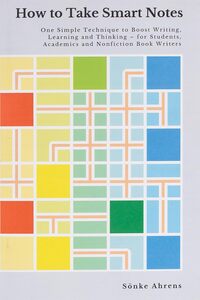
The key to good and efficient writing lies in the intelligent organisation of ideas and notes. This book helps students, academics and nonfiction writers to get more done, write intelligent texts and learn for the long run. It teaches you how to take smart notes and ensure they bring you and your projects forward.
The Take Smart Notes principle is based on established psychological insight and draws from a tried and tested note-taking-technique. This is the first comprehensive guide and description of this system in English, and not only does it explain how it works, but also why. It suits students and academics in the social sciences and humanities, nonfiction writers and others who are in the business of reading, thinking and writing. Instead of wasting your time searching for notes, quotes or references, you can focus on what really counts: thinking, understanding and developing new ideas in writing.
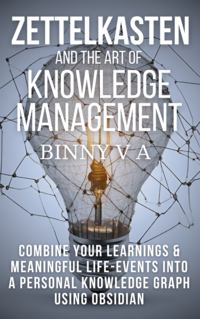
This book explains the principles of PKM and Zettelkasten, and also gives step-by-step instructions to get you started, and most importantly: It introduces the concept of the Graph Journal, which helps you map out both your knowledge and the significant elements in your life, and show you connections, patterns, and possibilities.
It helps you gain more insight, create better ideas, and get a much deeper understanding of your life, your goals, and how to achieve them. It shows how everything connects together, and will help you see where connections need to be made and gaps need to be filled, in order for you to get to your goals.
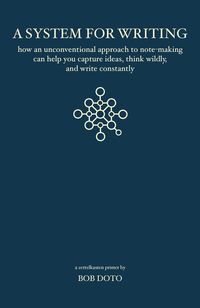
This is a book for writers who want to write more, who struggle to write, who ruminate on ideas, but rarely get them down on paper. It's a book for creatives who fear the creative process, for dreamers who start projects, but never see them through. It's a book for thinkers who take hundreds of notes, but rarely turn them into manuscripts. Most importantly, this book is for anyone who doesn't write for fear of having nothing to say.
This books will teach you how to: Effortlessly capture ideas before they slip away, Save the most relevant insights from what you read, Connect information in profound and unexpected ways, Transform individual notes into articles, blog posts, and books, Start every writing session with words already on the page, Develop a system for writing that not only supports your creativity, but inspires it
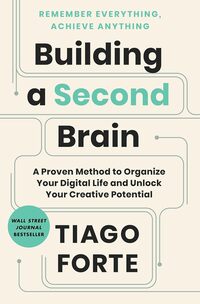
For the first time in history, we have instantaneous access to the world's knowledge. There has never been a better time to learn, to contribute, and to improve ourselves. Yet, rather than feeling empowered, we are often left feeling overwhelmed by this constant influx of information. The very knowledge that was supposed to set us free has instead led to the paralyzing stress of believing we'll never know or remember enough.
Now, this eye-opening and accessible guide shows how you can easily create your own personal system for knowledge management, otherwise known as a Second Brain. As a trusted and organized digital repository of your most valued ideas, notes, and creative work synced across all your devices and platforms, a Second Brain gives you the confidence to tackle your most important projects and ambitious goals.
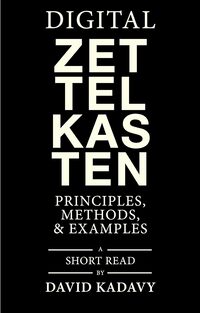
The Zettelkasten method is the perfect way to harness the power of technology to remember what you read and boost creativity. Invented in the 16th century, and practiced to its fullest extent by a German sociologist who wrote seventy books and hundreds of articles, the Zettelkasten method is exploding in popularity. Writers of all types are discovering that digital tools make the method more powerful than ever, turning your digital life into an “external brain,” or “bicycle for the mind.”
In Digital Zettelkasten: Principles, Methods, & Examples, blogger and nonfiction author David Kadavy shares a first-principles approach on how to adapt the Zettelkasten method to simple digital tools of your choice.

Wish you could remember what you read? Are you studying and want to remove the stress of writing assignments? Maybe you want to write more, create impactful content or teach effectively and need a system to keep your ideas and insights organised.
Atomic Note-Taking will guide you through everything you need to know about the Zettelkasten note-taking method and how to use it to create your own atomic notes. You'll use these to create the building blocks for your own knowledge system that will help you stay organised, think deeply and love learning.
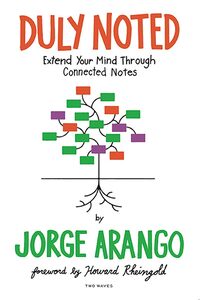
Better thinking makes you a better person. And few things extend your mind as quickly and powerfully as the humble note. Notes let you fulfill commitments, manage complicated projects, and make your ideas real. Digital notes take you even further. By using the right tools and a bit of discipline, you can cultivate a “personal knowledge garden" where your thinking will blossom.

If you're interested in becoming a prolific reader, researcher, or writer, then learning the true principles of Zettelkasten could change your life.
Antinet Zettelkasten details the Zettelkasten in all its glory - in its original form - the analog form.
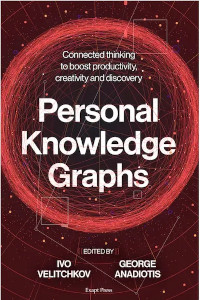
What are Personal Knowledge Graphs and what are they good for?
Do you write, read and think for work or leisure? Then probably your notes, ideas and images are stuck in dusty notebooks, forgotten files and buried emails.
What if all the thinking you would ever done was live, fresh and connected? What if new knowledge popped up connections to forgotten thoughts? What if you could surf your thinking like the web?
That is connected thinking. That is a Personal Knowledge Graph.
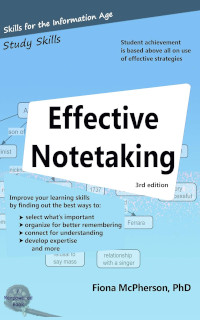
You can predict how well a student will do simply on the basis of their use of effective study strategies. This book is for college students who are serious about being successful in study, and teachers who want to know how best to help their students learn. Being a successful student is far more about being a smart user of effective strategies than about being 'smart'. Research has shown it is possible to predict how well a student will do simply on the basis of their use of study strategies. This workbook looks at the most important group of study strategies - how to take notes (with advice on how to read a textbook and how to prepare for a lecture).
You'll be shown how to: format your notes, use headings and highlighting, how to write different types of text summaries and pictorial ones, including concept maps and mind maps (you'll find out the difference, and the pros and cons of each), ask the right questions, make the right connections, review your notes, evaluate text to work out which strategy is appropriate.
Any more?
If there is a book about PKM that is not listed here, please let me know. Easiest way to reach me is on twitter: @binnyva. Another option is to send me an email: binnyva, gmail.